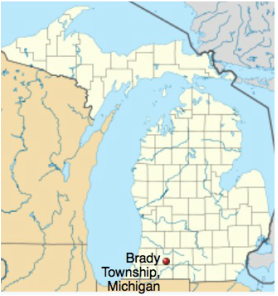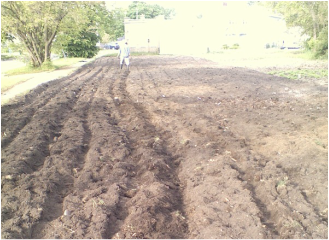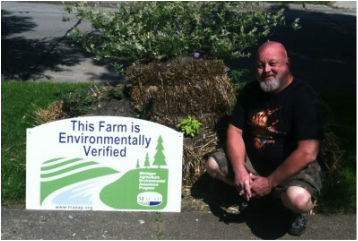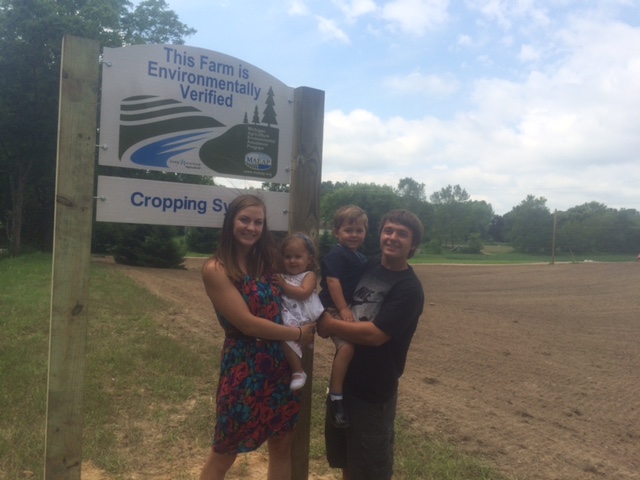Brady Township Planning Commission December 7, 2015
Dear Commissioners Crawford, Henderson, Miller, LeZotte, Locey, Oswalt, and Skrzypek:
I am writing as the President of the Michigan Small Farm Council to ask you to reconsider amending the Brady Township Zoning Ordinance to delete agricultural as a permitted use for 280 parcels in the RR single family rural residential district.
I understand that in the late 1980s and early 1990s Brady Township experienced an ongoing situation with the Tobe Strong farm, which began with Mr. Strong violating his discharge permit. At that time the Department of Natural Resources (DNR) attempted to rescind the permit, but Mr. Strong continued to farm. This initiated a response by the Michigan Department of Agriculture (MDA) and the Michigan Farm Bureau (MFB) to challenge the authority of the DNR to restrict the discharge permit of an agricultural operation, and led to the eventual transfer of authority over farm discharges from the DNR to the MDA. In particular, in September 1989 the Water Resources Commission unanimously revoked Mr. Strong’s permit to store and land-apply animal waste on his property in Brady Township. However, this had no effect since the authority over his operation had been shifted to MDA under the Right to Farm Act. Complaints continued over the next several years, and Brady Township eventually filed a complaint for ordinance violation. This was settled out of court when Brady Township purchased Mr. Strong’s right to raise livestock on his property for $40,000. By late 1991 all hogs were removed from the Tobe Strong farm.
In 1992, Commissioner Crumbaugh of the Michigan Commission of Agriculture observed that a dichotomy was occurring in which the citizenry of Michigan supported expansion of production livestock agriculture through their state taxes, while at the same time some citizens were working to put these large operations out of business through complaints and the initiation of local ordinances against them. He questioned which was right. I have my own views, but history shows that in 1999 the Michigan Right to Farm Act was amended to make it very costly for citizens to bring complaints against agricultural operations, and impossible for local governments to use ordinances to affect operations protected by Right to Farm. In addition, a new requirement was made for the Department of Environmental Quality (DEQ) to engage in a Memorandum of Understanding with MDA that limited their ability to regulate farm operations, as had previously been done to the DNR. A direct consequence of the 1999 amendment to the Right to Farm Act has been the proliferation of production livestock in Michigan, without the consent of the citizenry.
I became involved in agricultural policy from a different perspective. I live in an urban area, and like many read the Right to Farm court cases that occurred in 2003, 2004, and 2005, in which the courts interpreted the clear language of the 1999 amendment to the Right to Farm Act to mean that any operation, regardless of size or place was protected by the act, if it was commercial and if it followed generally accepted agricultural management practices (GAAMPs). This legal right to participate in agriculture and to grow food has become important to many people for a range of reasons. Perhaps most importantly, it turns out that the effects of production agriculture impact not only neighbors and communities, but also everyone who eats. As production agriculture has squeezed out small farm production in the state and eliminated traditional food choices, a growing number of people are opting to grow and sell from their own land, in rural areas and also in residential areas where most people live.
But here is where it gets complicated. The same state agricultural agency that uses the Right to Farm Act to protect very large animal production operations, refuses to allow the Right to Farm Act to protect very small operations, despite multiple Appeals Court rulings stating that it already does. Indeed, soon after MDA changed its name to the Michigan Department of Agriculture and Rural Development (MDARD) in 2011, they began making a series of changes to the GAAMPs with the specific intent of disenfranchising small farmers from their legal, legislatively-enacted Right to Farm protection. As you are certainly aware, the changes to the 2014 GAAMPs gave you and other townships an opening to exert local control over farm operations, by using zoning to restrict agriculture in areas that meet the definition of the newly coined ‘primarily residential’ term.
So this is where we are. Brady Township understands clearly the risks of production agriculture, and wishes to avoid the repeat of another Tobe Strong situation within its borders. The change to the 2014 GAAMPs provides that opportunity, but only if you remove all agricultural rights, and not only the agricultural practices that are so offensive in production agriculture. Thus to prevent a kind of agriculture that almost no one wants, you are forced to prevent a kind of agriculture that almost everyone wants – the kind of small-scale agriculture that grows food in traditional ways.
I am writing to ask you to consider the ramifications if every township and municipality in Michigan follows the Brady Township approach of eliminating agricultural rights of small operations, in order to forestall large operations. Since we all have to eat, I believe the elimination of small operations will result in the further consolidation and control of large operations over the food we eat. There can be no choice, no “local” food, if growing food locally is illegal.
Brady Township sits at a historic crossroads when it comes to agricultural policy in Michigan. It could be argued that it was the Tobe Strong case that led to the dismantling of DNR and DEQ authority over agricultural waste pouring into Michigan waters, to the loss of neighbor rights to file nuisance complaints, and to the loss of local rights to regulate these industrial operations through zoning and ordinances. And now, nearly three decades later it is in your hands to decide whether you will take advantage of the changes made to the 2014 GAAMPs to eliminate the agricultural rights of small farmers, in order to protect yourselves from the risks of large farms moving in.
My own view is that the agricultural policies of MDARD have been out of step with the citizenry at least since the Tobe Strong case. Commissioner Crumbaugh was right; there was a real dichotomy of opinion in the early 1990s, and the real and legitimate objections to MDA policies were silenced by the 1999 amendment to the Right to Farm Act. But the next policy decision is yours, and you can choose to vote Yes to pass an ordinance that will prevent production agriculture in Brady Township, or you can choose to vote No, to not pass an ordinance that will make commercial small-scale agriculture illegal in Brady Township. I urge you to vote No, and to protect commercial small-scale agricultural rights in Brady Township.
Sincerely,
Wendy Lockwood Banka
President, Michigan Small Farm Council






 RSS Feed
RSS Feed